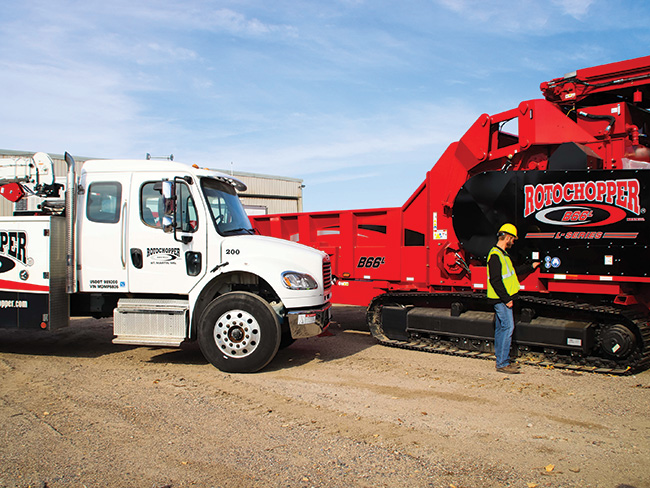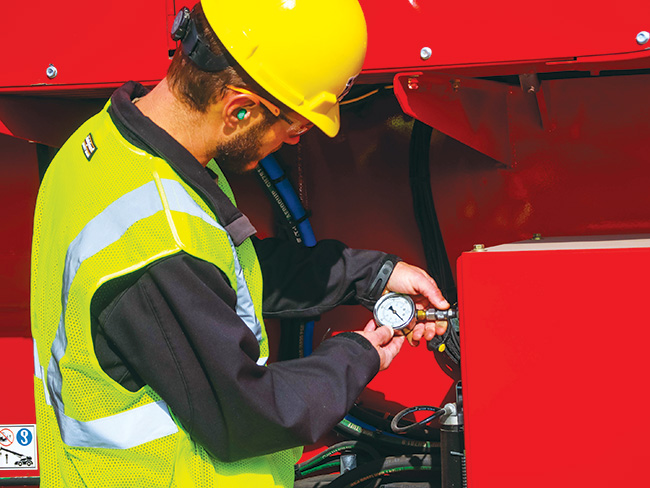Regular maintenance protects the investment in your horizontal grinding equipment, whether it is the grinder itself or supporting machinery.
By Doug (Spike) Meyer
In the horizontal grinding and waste reduction industries, productivity is everything. An efficient operation means more uptime spent creating a high-quality product, which, in turn, means more profit for your company.
There are plenty of ways to decrease your operation’s downtime—reducing material handling or using telematics to streamline your process, for example. One of the best ways to minimize downtime is also one of the most important parts of owning horizontal grinding equipment: regular preventative maintenance.

How Preventative Maintenance Prevents Excessive Downtime
Regular maintenance protects your investment in your horizontal grinding equipment, whether it is the grinder itself or supporting machinery, like a conveyor system. Like any piece of machinery, horizontal grinding equipment needs maintenance to
operate efficiently. If your machine is poorly maintained, your rate of production will likely decrease as your downtime increases.
Neglecting regular maintenance tasks can also turn what would have been a small fix into a problematic breakdown. For many companies, a broken-down piece of equipment means the entire operation is at a standstill until repair service arrives. That downtime spent waiting for service is lost production time and, in turn, lost profits.
Of course, even a well-maintained machine may experience an unforeseen breakdown. When that happens, make sure your horizontal grinding partner is equipped to provide efficient, knowledgeable service and quick turnarounds on parts ordering.
Preventative Maintenance Best Practices
A standardized preventative maintenance program allows you to schedule equipment checkups on a regular or one-time basis. By using this type of program, you can schedule visits at your convenience, working around your daily operation hours to ensure technicians do not cut into your valuable uptime.
Working with expert service technicians who are trained to spot and fix small problems before they can cut into your operation’s production will create efficiencies and set you up for later success. Common maintenance tasks include:
- Checking control devices
- Checking moving parts for smooth operation
- Checking hydraulic system pressures
- Observing the environment and feedstock for potential causes of problems
- Checking the condition of fluids and filters
- Monitoring and recording electric motor amp draw
- Inspecting and aligning conveyor belts
- Inspecting and recording rotor, teeth, and screen wear
-

Daily checks and regular maintenance of your
equipment minimize downtime risks down the road
Photos courtesy of Rotochopper.
Running at Peak Productivity
During Preventative Maintenance visits, technicians should also consider maintenance history, recent performance, and usage hours. Additionally, they should discuss any concerns with your grinder operator and make suggestions to help ensure your equipment is always running at peak productivity. | WA
Doug (Spike) Meyer is the Director of Customer Service for Rotochopper. Spike has more than 26 years of experience working with wood processing equipment, all of which have been spent with Rotochopper. For more than 30 years, Rotochopper has specialized in equipment that transforms waste materials into profitable opportunities like colored landscape mulch, animal bedding, biomass fuels, and compost. As a factory-direct company, they are uniquely focused on providing innovative solutions and extraordinary customer service to the Rotochopper customers around the world. For more information, call (320) 548-3586 or visit www.rotochopper.com.
